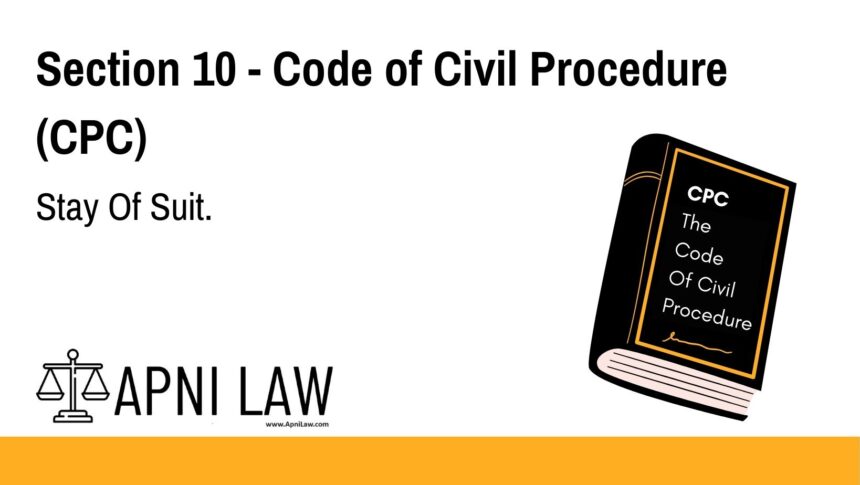Code: Section 10 CPC
No Court shall proceed with the trial of any suit in which the matter in issue is also directly and substantially in issue in a previously instituted suit between the same parties, or between parties under whom they or any of them claim litigating under the same title where such suit is pending in the same or any other Court in India having jurisdiction to grant the relief claimed, or in any Court beyond the limits of India established or continued by the Central Government and having like jurisdiction, or before the Supreme Court.
Explanation: The pendency of a suit in a foreign Court does not preclude the Courts in India from trying a suit founded on the same cause of action.
Explanation of Section 10 CPC
Section 10 of the Code of Civil Procedure lays down the principle of Res Sub Judice, which prevents courts from trying a case that is already pending in another court with competent jurisdiction. This provision promotes judicial economy and prevents conflicting decisions by staying the latter suit until the previously filed suit is resolved.
This section applies when:
- There is a previously instituted suit,
- The matter in issue in both suits is directly and substantially the same,
- The suits involve the same parties or their successors,
- The earlier suit is pending before a court with jurisdiction.
Importantly, the explanation clarifies that if a suit is pending in a foreign court, that does not bar Indian courts from proceeding with a similar suit.
Illustration
Example 1:
A files a suit against B for ownership of a piece of land in a Delhi court. While that case is still pending, B files a similar suit in a Mumbai court concerning the same land and parties.
→ The Mumbai court must stay the latter suit under Section 10 CPC since the matter is already pending.
Example 2:
A files a suit in a court in the United States concerning breach of contract. B later files the same suit in an Indian court.
→ The Indian court can proceed; the pending case in a foreign court is not a bar under Section 10.
Common Questions & Answers
1. Is Section 10 CPC mandatory or discretionary?
It is mandatory. Once the conditions are met, the court has no discretion and must stay the latter suit.
2. Can the court stay the proceedings partially under Section 10?
No. The section mandates a complete stay of trial if the matter in issue is substantially the same.
3. Does Section 10 bar the institution of the second suit?
No, it only bars the trial of the suit, not its institution.
4. What happens if the earlier suit is withdrawn?
Once the earlier suit is withdrawn or dismissed, the stay under Section 10 no longer applies, and the latter suit can proceed.
5. Is Section 10 applicable in writ or criminal proceedings?
No. Section 10 applies strictly to civil suits.
Conclusion
Section 10 of the CPC is a key procedural safeguard that prevents judicial duplication and inconsistency. It ensures that once a matter is seized by a competent court, no parallel proceedings on the same subject are entertained. This principle upholds judicial discipline and efficiency.
If you want to read more civil procedure sections in a structured way, visit ApniLaw’s CPC Bare Act Section List.








